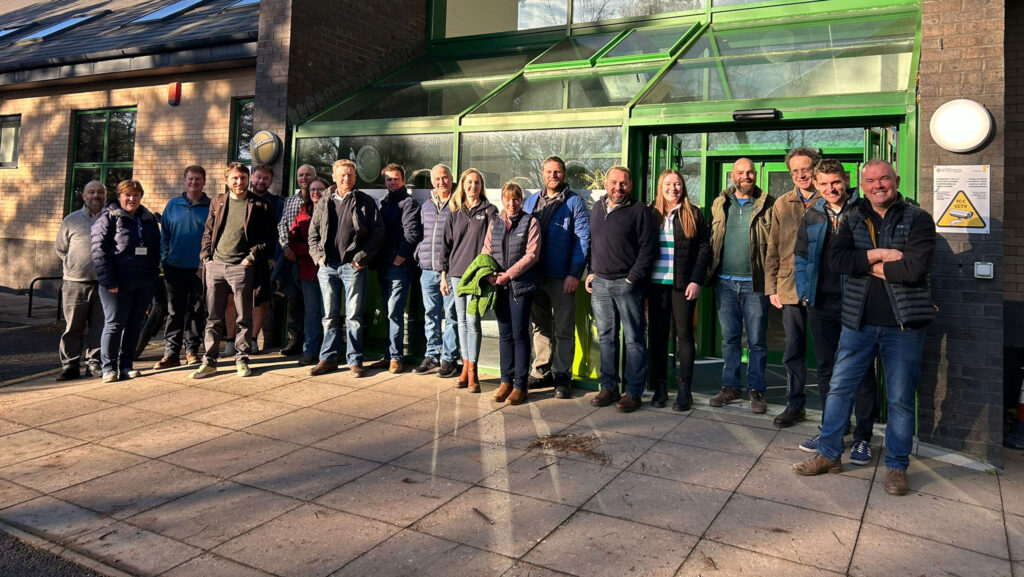Pembrokeshire farmers come together to tackle TB
 The Pembrokeshire TB group and Bev Hopkins (centre) © Beverley Hopkins
The Pembrokeshire TB group and Bev Hopkins (centre) © Beverley Hopkins A group of Pembrokeshire farmers have joined forces to support each other in dealing with bovine tuberculosis (TB).
Forming the first Agrisgop group to focus on TB, the 15 farmers said they recognised the profound impact of the disease on both their livestock and personal wellbeing.
Joining forces, they wanted to share experiences and learn how they can take more control in the battle against TB.
See also: Severe mental health toll of bovine TB revealed in report
The Agrisgop group was set up to add further value to the Pembrokeshire Bovine TB project.
The initiative is a collaboration between Iechyd Da and the Ser Cymru Centre of Excellence for Bovine TB at Aberystwyth University, and was facilitated by Dr Bev Hopkins.
Over the past 10 months, the farmers have looked into practical changes on their farms such as biosecurity measures, vaccination, voluntary culling, pasteurised colostrum for calf feeding, cattle movements and slurry management.
Greater confidence
Member Michael Williams, who milks 150 cows on a robotic milking system at Fagwrfran East, Puncheston, said: “It’s given me the confidence to change practices on my farm.
“I really felt that I am not facing TB alone, which I believe is key.”
The group also enjoyed a study trip to Aberystwyth University where they had tours of the laboratories of the Centre of Excellence of Bovine TB and Vethub1.
They also receiving talks from scientists working on badger population genetics, whole genome sequencing, and research undertaken on blood samples from cattle.
Following the success of the Pembrokeshire Bovine TB project and Agrisgop group, there are now plans to replicate the work in North Wales.
Dewi Hughes, head of animal health for Mentera, said: “By fostering a supportive environment for sharing information and ideas, and collaborative problem-solving, we can empower farmers and vets to take control and drive positive change in the fight against TB.
“Just as Pembrokeshire proved, collective action and shared experience are vital tools in navigating the complexities of TB.”
